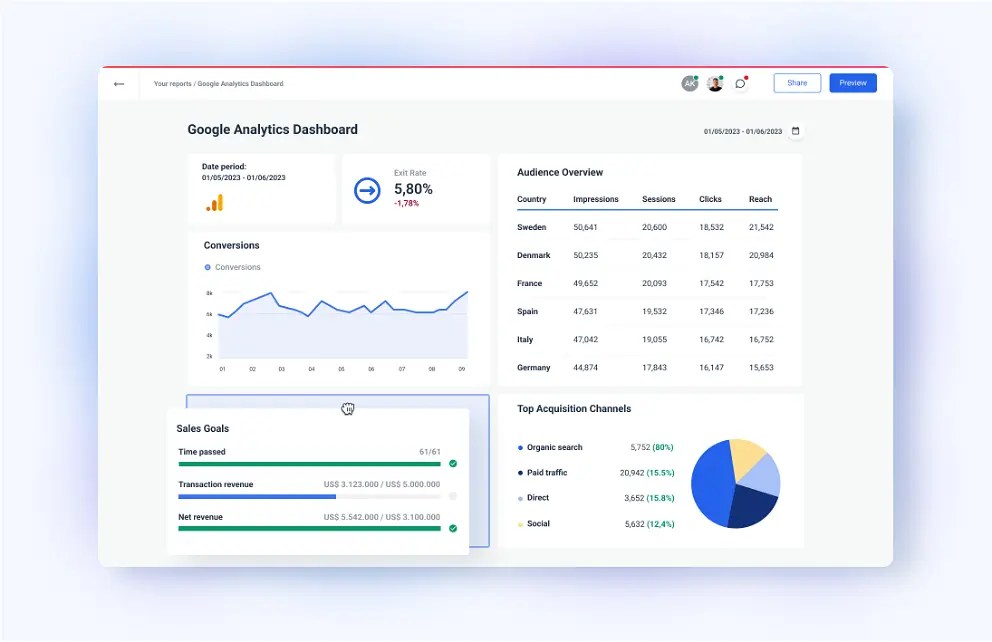Content Optimization for Search Engines
Content Management and SEO: A Winning Combination
In the competitive digital landscape, content management and search engine optimization (SEO) are inextricably linked. Effective content management practices not only enhance user experience but also play a crucial role in boosting website visibility and organic traffic.
Well-managed content provides valuable information that resonates with target audiences. By creating high-quality, relevant, and engaging content, businesses can establish themselves as thought leaders and attract potential customers. However, simply creating great content is not enough. It must be optimized for search engines to ensure it reaches the right people at the right time.
SEO involves optimizing website content and structure to improve its ranking in search engine results pages (SERPs). By incorporating relevant keywords, optimizing page titles and meta descriptions, and building high-quality backlinks, businesses can increase their visibility and drive more organic traffic to their websites.
The synergy between content management and SEO is undeniable. Well-managed content provides the foundation for effective SEO, while SEO helps distribute that content to a wider audience. By aligning content strategy with SEO best practices, businesses can create a powerful combination that drives website traffic, generates leads, and ultimately increases revenue.
To achieve this winning combination, businesses should focus on the following key areas:
- Keyword research: Identify relevant keywords that potential customers are searching for.
- Content optimization: Optimize content for target keywords while maintaining readability and user engagement.
- Technical SEO: Ensure website structure, page speed, and mobile responsiveness meet SEO standards.
- Link building: Acquire high-quality backlinks from reputable websites to improve website authority.
- Content promotion: Promote content through social media, email marketing, and other channels to reach a wider audience.
By implementing these strategies, businesses can create a content management system that not only delivers valuable information to users but also drives organic traffic and improves overall website performance.
In conclusion, content management and SEO are essential components of a successful digital marketing strategy. By leveraging the power of both disciplines, businesses can create a winning combination that attracts, engages, and converts potential customers. By aligning content strategy with SEO best practices, businesses can establish a strong online presence, increase website visibility, and achieve their business goals.
Keyword Research for Effective Content
Content Management and SEO: A Winning Combination
In today’s digital landscape, content is king. However, simply creating content is not enough; it must be optimized for search engines (SEO) to reach its full potential. Content management and SEO are inextricably linked, forming a powerful combination that can drive traffic, increase visibility, and boost conversions.
Effective content management involves planning, creating, and distributing high-quality content that aligns with the target audience’s needs and interests. By understanding the search intent behind keywords, content creators can tailor their content to provide relevant and valuable information. Keyword research is a crucial aspect of SEO, as it helps identify the terms and phrases that potential customers are searching for.
By incorporating relevant keywords into the content, websites can improve their ranking in search engine results pages (SERPs). This increased visibility leads to more organic traffic, which can translate into increased leads and sales. Additionally, well-optimized content enhances the user experience by providing clear and concise information that meets their search queries.
Furthermore, content management and SEO work together to improve website authority and credibility. By consistently publishing high-quality content that is relevant to the industry, websites can establish themselves as thought leaders and trusted sources of information. This, in turn, can lead to backlinks from other reputable websites, which are a key factor in determining search engine rankings.
Moreover, content management and SEO can be leveraged to target specific audiences and drive conversions. By understanding the demographics, interests, and search behavior of the target audience, content creators can tailor their content to resonate with them. This targeted approach increases the likelihood of conversions, as the content is more likely to meet the specific needs and desires of the audience.
In conclusion, content management and SEO are essential components of a successful digital marketing strategy. By aligning content with search intent, incorporating relevant keywords, and targeting specific audiences, businesses can create a winning combination that drives traffic, increases visibility, and boosts conversions. By embracing this powerful partnership, businesses can unlock the full potential of their content and achieve their online marketing goals.
The Role of Content in Link Building
Content Management and SEO: A Winning Combination
In the realm of digital marketing, content management and search engine optimization (SEO) are inextricably linked. Effective content management practices not only enhance user experience but also play a crucial role in boosting website visibility and organic traffic.
High-quality content serves as the foundation for successful SEO campaigns. By creating informative, engaging, and relevant content, businesses can attract and retain visitors, establish themselves as thought leaders, and build trust with their target audience. Search engines, in turn, reward websites with valuable content by ranking them higher in search results pages (SERPs).
One of the key benefits of content management for SEO is its ability to generate backlinks. Backlinks are links from other websites that point to your own, and they are a significant ranking factor for search engines. By creating compelling content that other websites find valuable, you can encourage them to link to your site, thereby improving your website’s authority and credibility.
Furthermore, content management allows you to optimize your website for specific keywords. By incorporating relevant keywords into your content, you can increase the chances of your website appearing in search results when users search for those terms. However, it’s important to avoid keyword stuffing, as this can negatively impact your SEO efforts.
In addition to generating backlinks and optimizing for keywords, content management also plays a role in improving website usability and user experience. Well-written, easy-to-navigate content makes it easier for visitors to find the information they need, which can lead to increased engagement and conversions. Search engines also take into account user experience when ranking websites, so a user-friendly website is more likely to rank higher in SERPs.
To effectively leverage content management for SEO, it’s essential to adopt a holistic approach. This includes creating high-quality content, optimizing for relevant keywords, building backlinks, and ensuring a positive user experience. By integrating these strategies into your content management plan, you can significantly improve your website’s visibility, attract more organic traffic, and achieve your business goals.
In conclusion, content management and SEO are mutually reinforcing disciplines that work together to enhance website performance. By creating valuable content, optimizing for keywords, and building backlinks, businesses can establish a strong online presence, drive traffic to their website, and ultimately achieve their marketing objectives.
Content Marketing and SEO: A Synergistic Approach
Content Management and SEO: A Winning Combination
In the ever-evolving digital landscape, content management and search engine optimization (SEO) have emerged as indispensable pillars for businesses seeking online success. By leveraging the power of these two disciplines, organizations can establish a robust online presence, attract targeted traffic, and drive conversions.
Content management involves the creation, curation, and distribution of valuable and engaging content that resonates with the target audience. High-quality content not only informs and educates readers but also establishes the brand as a thought leader in its industry. By providing relevant and informative content, businesses can build trust and credibility with potential customers.
SEO, on the other hand, focuses on optimizing websites and content to improve their visibility and ranking in search engine results pages (SERPs). By implementing SEO best practices, such as keyword research, on-page optimization, and link building, businesses can increase the chances of their content being discovered by users searching for relevant information.
The synergy between content management and SEO is undeniable. Well-written and optimized content not only engages readers but also attracts search engine crawlers. By incorporating relevant keywords and phrases into the content, businesses can improve their chances of ranking higher in SERPs. This increased visibility leads to more organic traffic, which can translate into increased leads and sales.
Furthermore, content management and SEO complement each other in terms of user experience. High-quality content that is easy to read, navigate, and share enhances the user experience. This, in turn, sends positive signals to search engines, which favor websites that provide a positive user experience.
To achieve optimal results, businesses should adopt a holistic approach that integrates content management and SEO strategies. This involves creating content that is both valuable to the target audience and optimized for search engines. By aligning content with user intent and incorporating SEO best practices, businesses can establish a strong online presence that attracts targeted traffic and drives conversions.
In conclusion, content management and SEO are two sides of the same coin. By leveraging the power of both disciplines, businesses can create a winning combination that drives online success. By providing valuable content that is optimized for search engines, organizations can establish themselves as thought leaders, attract targeted traffic, and ultimately achieve their business goals.
Measuring the Impact of Content on SEO Performance
Content Management and SEO: A Winning Combination
In today’s digital landscape, content is king. Not only does it engage audiences and drive traffic, but it also plays a crucial role in search engine optimization (SEO). By aligning content management strategies with SEO best practices, businesses can significantly enhance their online visibility and organic search rankings.
One of the key aspects of content management for SEO is keyword optimization. By incorporating relevant keywords into website content, businesses can improve their chances of appearing in search results for those terms. However, it’s important to avoid keyword stuffing, as this can negatively impact SEO performance. Instead, keywords should be used naturally and strategically throughout the content.
Another important factor is content quality. Search engines prioritize high-quality content that provides value to users. This means creating content that is informative, engaging, and well-written. By focusing on creating content that meets the needs of the target audience, businesses can increase their chances of ranking well in search results.
In addition to keyword optimization and content quality, content management for SEO also involves optimizing content for mobile devices. With the increasing use of smartphones and tablets, it’s essential to ensure that website content is mobile-friendly. This means using responsive design, which allows content to adapt to different screen sizes.
Furthermore, content management for SEO should include a focus on building backlinks. Backlinks are links from other websites to your own website. They are a key factor in determining the authority and credibility of a website in the eyes of search engines. By acquiring high-quality backlinks from reputable websites, businesses can improve their SEO performance.
To measure the impact of content on SEO performance, businesses can use various analytics tools. These tools provide insights into website traffic, keyword rankings, and other metrics that can help businesses track their progress and make adjustments to their content management strategies as needed.
By implementing effective content management strategies that align with SEO best practices, businesses can significantly improve their online visibility and organic search rankings. This can lead to increased website traffic, improved brand awareness, and ultimately, increased revenue. Therefore, content management and SEO should be considered a winning combination for any business looking to succeed in the digital age.




